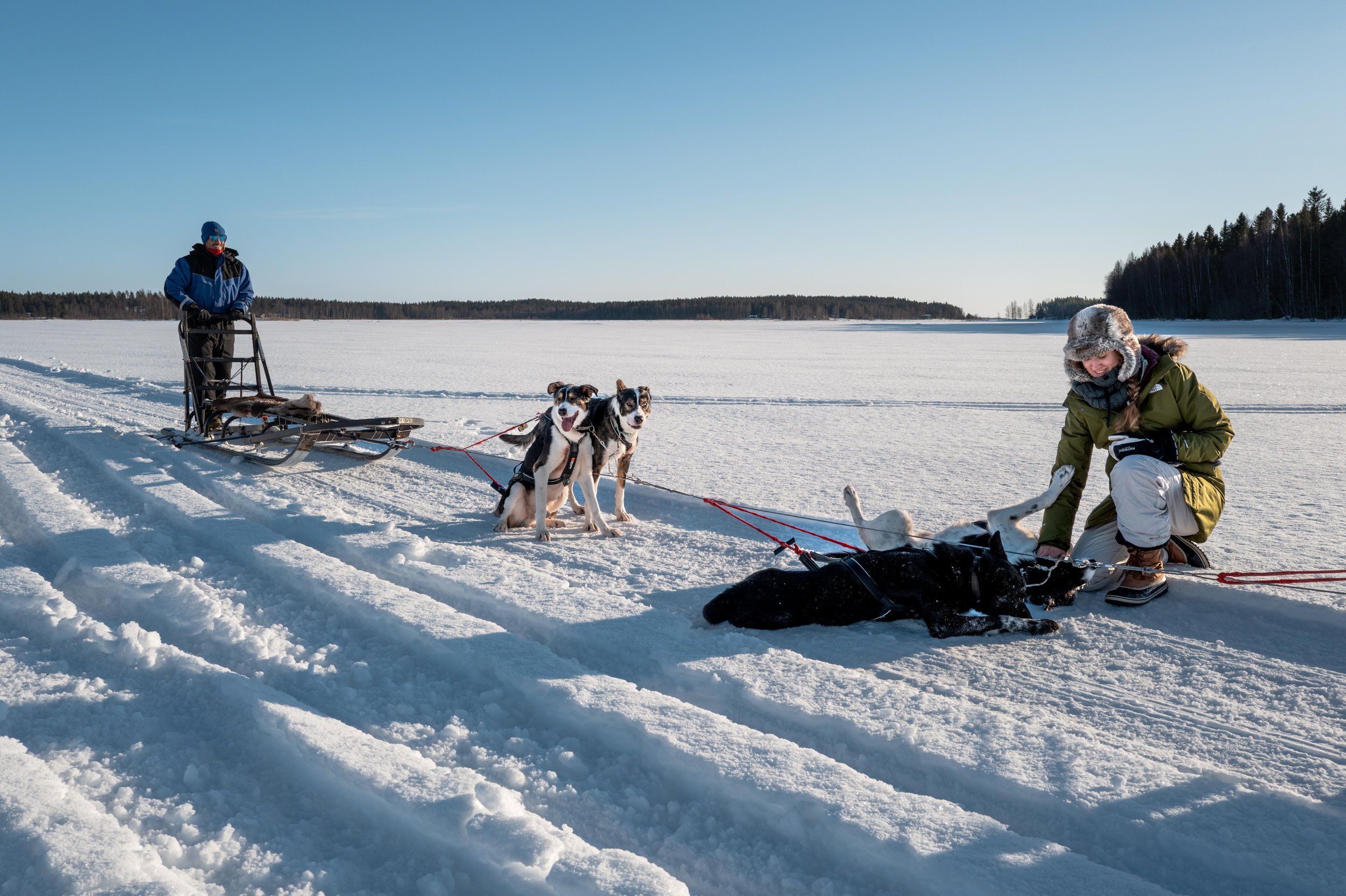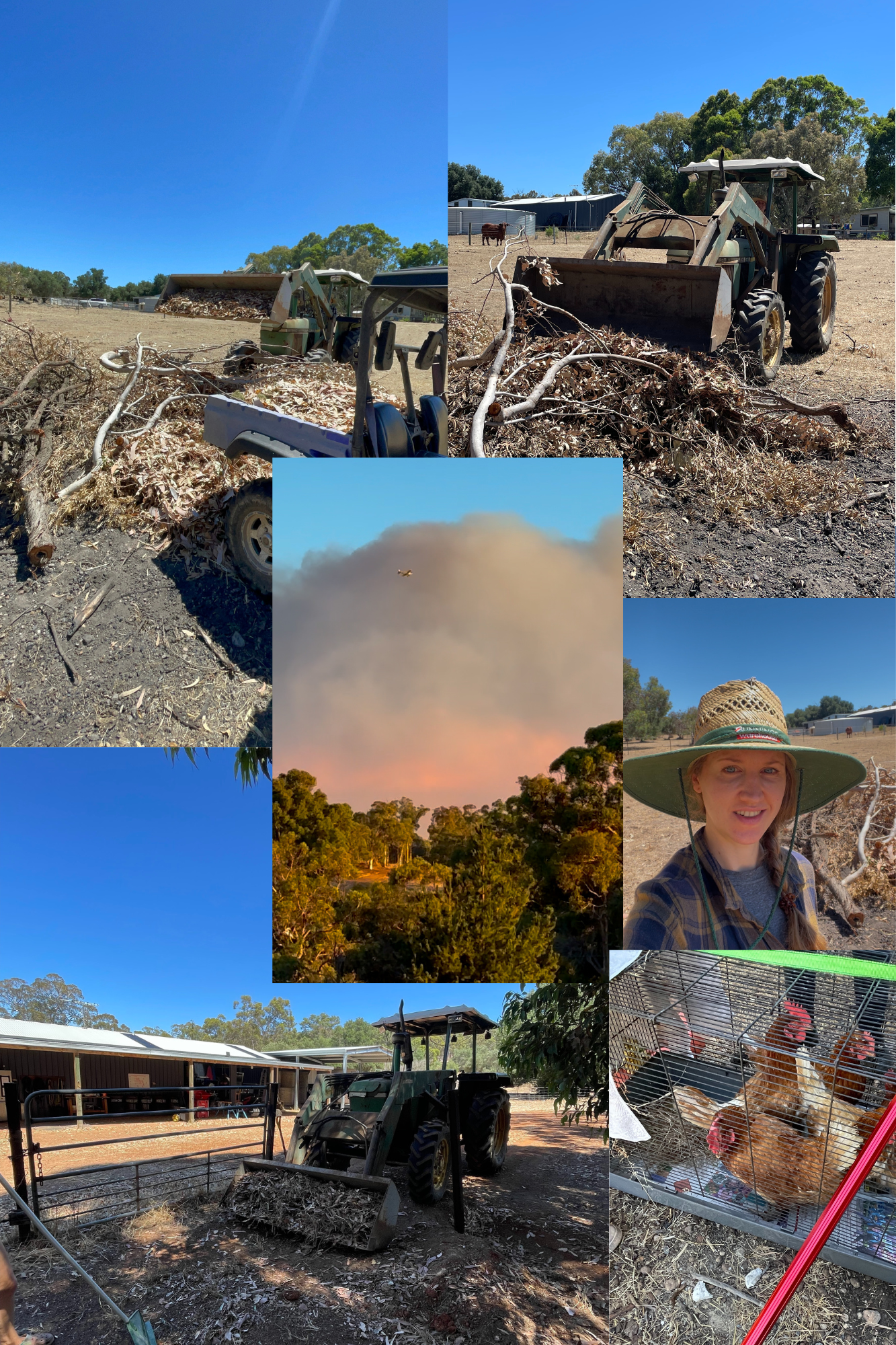
Stories from the field
What Australian Bushfire Prevention Taught Me About Sustainability Risk Assessment
It’s early morning, and instead of my alarm clock, I’m woken by the loud crow of a rooster. Blinking against the sunlight streaming into the room, I remember—I’m not in the cold Netherlands. I’m on my sister’s farm near Perth, Australia.
Just as I’m about to turn over and go back to sleep, I hear her call out: “Dig! We have to start clearing the leaves before it gets too hot!”
Every summer, bushfire season becomes a reality for her and her husband. They spend hours clearing dry leaves, cutting grass, and creating firebreaks to protect their farm, animals, and neighbors. With bushfires increasing in frequency and intensity over the last decade due to climate change, this isn’t just a chore—it’s essential.
The Australian government enforces strict fire safety laws: drones and helicopters monitor compliance, and fines are issued the same day if firebreaks aren’t maintained. Worse, if a fire hits and you’re not prepared, insurance won’t cover the damages. Most importantly, failure to act puts lives—both human and animal—at risk.
What would you do if it were your property instead of your business? When it’s personal, the answer is simple: you’d take every precaution to protect what matters most. The same mindset applies to sustainability in business.
While my sister’s farm isn’t a business, her bushfire prevention efforts mirror the Impacts, Risks, and Opportunities (IROs) businesses assess under the CSRD.
Impacts:
Negative Impact: Failing to clear leaves and maintain firebreaks could result in bushfires spreading across her property and beyond. This could devastate livestock, destroy local wildlife habitats, and contribute to long-term environmental degradation.
Positive Impact: On the other hand, my sister’s efforts have a meaningful impact. She rescues ex-racehorses, battery hens, and cows—all saved from slaughterhouses—offering them shelter and a second chance at life. Her farm not only mitigates risks but also provides a safe haven for animals in need.
Risks: Non-compliance with fire laws results in immediate fines, reputational damage, and, critically, no insurance coverage for damages if a fire occurs. Likewise, businesses that fail to address sustainability risks face financial, regulatory, and reputational consequences. Again, what would you do if it were your property? The risks become impossible to ignore when it’s personal.
Opportunities: Proactively preparing her land not only protects her farm but also strengthens bonds with neighbors. By sharing resources and taking collective responsibility, the community builds trust and long-term resilience. Businesses, too, can thrive by addressing sustainability challenges, fostering collaboration, and unlocking innovation.
Whether it’s a farm or a company, the lesson is the same: proactive responsibility protects what matters most.
Later that afternoon, reality hit hard. A fire alert was issued, and the air smelled faintly of smoke. We rushed to help her neighbor evacuate some animals as a precaution, a stark reminder that danger is often closer than we think.
This experience reinforced an important truth: preparation isn’t just about avoiding penalties—it’s about protecting what matters most.
For businesses, the CSRD presents a similar challenge. Assessing your IROs isn’t just about compliance—it’s a chance to safeguard your operations, strengthen your reputation, and create long-term opportunities.
So, whether you’re clearing leaves or building a sustainability strategy, ask yourself: What would you do if it were your property instead of your business? How are you preparing for your own “bushfire season”?
